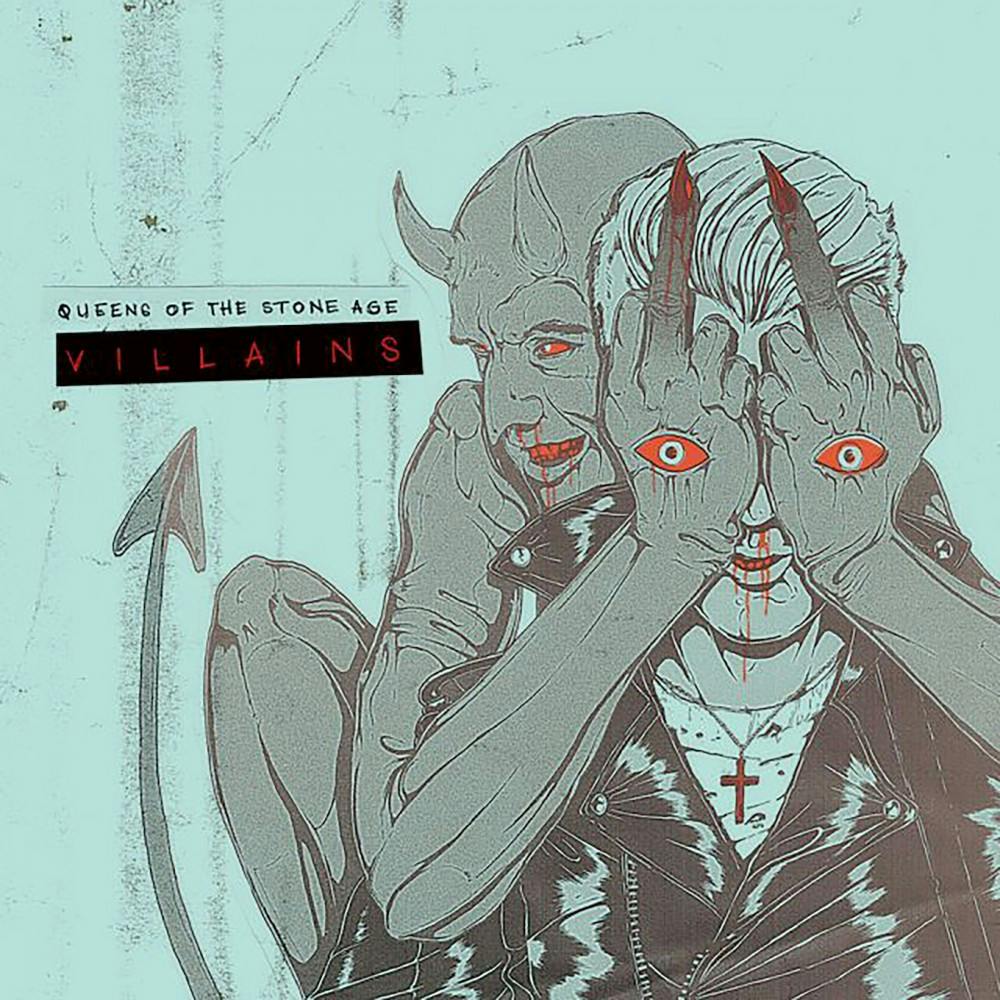Album: Villains
Artist: Queens of the Stone Age
Label: Matador
Release Date: Aug. 25
Grade: A-
In 2017, attempting to captivate the music world with a rock record is a bold endeavor. Attempting to layer that same record with pop-influenced beats – without computerization – is even bolder.
On their new album, Queens of the Stone Age (QOTSA) do both.
With Villains, the bandintroduces listeners to their most commercially engineered work yet. They do so by adding catchy, rhythmic hooks that take the listener on a tour of what is quickly becoming the Queens’experience.
QOTSA, with their persona and sound,have established themselves as a force to be reckoned with in the sphere of rock.
Led by Josh Homme, the group explores new dynamics that both satisfy and entice the listener, veteran and novice alike.
Following 2013’s chart-topping…Like Clockwork, Queens of The Stone Age have proven themselves time resistant in their ability to relate to rock enthusiasts through the years. The band decided to engineer, mix and produce the albums themselves, taking a leap that paid off in spades – achieving the number one position in both the U.K. and U.S. charts.
This year, the band paired with acclaimed pop producer Mark Ronson in order to re-engineer the framework of their sound, moving to adapt, rather than conform, to the music climate that dominates the world stage.
The band and producer pairing might be seen as odd, with Josh Homme telling the BBC that he felt their “combination was odd on paper and would demand that you have an open mind.”
However strange Ronson’s placement may seem, Villains has become the second consecutive QOTSA number one album in the U.K.
Lyrically, the album provides the depth that is typical from Josh Homme.
Noticeable on the project is the departure from more concept-oriented lyrics, found on …Like Clockwork that links each track cohesively, telling the broader story. Instead, this album is an entertaining and liberating collection of tracks that act to impress independently rather than sync as one.
This does not engulf the album’s narrative, however.
Whether playing the album from beginning to end at once or picking independent tracks, the album provides sufficient narrative that gives each track success – measurable only by the tendencies and tastes of the listener.
There’s a lot to love for the normal Queenslistener, but what’s missing is the usual display of rock icons that has come to be typical with a QOTSAalbum, with Villains featuring no guest artists.
Ronson’s touch is illuminated throughout the album, however, most prominently on lead single “The Way You Used to Do” The single combines rhythmic, floor thumping beats with crisp, head-shaking guitar riffs that have come to define the QOTSA sound.
The album then quickly slides into a pattern of psychedelic-style rock that opens “Domesticated Animals.”
The track features lyrics that significantly differ the more melodic and upbeat begging tracks. The band finds it necessary to depart a seemingly fluid stream of rock that falls short, causing the track to feel uninhabited as each minute goes by.
The song finds strength in a solid middle section that intersects the hook and chorus, providing satisfaction to the enduring three-minute track.
Villains soon recovers to find its stride, with tracks “Fortress” and “Head Like a Haunted House” falling into place. They remind listeners of typical, original and enjoyable drum-driven QOTSAtracks that so elegantly illuminated 2013’s …Like Clockwork. The songs are definite standouts on the album, highlighting an already pleasant collection of work.
“Un-Reborn Again” brings forth a vivid picture of drug fueled lyrical ensemble that shows QOTSAimmersing themselves in a hypnotic sequence.
In hindsight, the album can also serve to perfect a perhaps misunderstood genre of music in this day and age. With charts dominated by hip-hop, rap and pop, listeners may give too much credit to a collection of songs that stray from the norm.
Rock is no longer the conglomerate that captivated the music world so astutely in the past. What matters most is the effect the album has on the minority-seasoned rockers with a taste for originality, while also providing a dose of straight-up rock that has been so feverishly diluted.
Will Queens of the Stone Age start a revolution of rock across the musical spectrum? Probably not. But to watch a band make such a statement from an outsider’s point of view brings enjoyment for all who listen.
Brian Evans is a senior English major and The Spectrum's senior arts editor.






